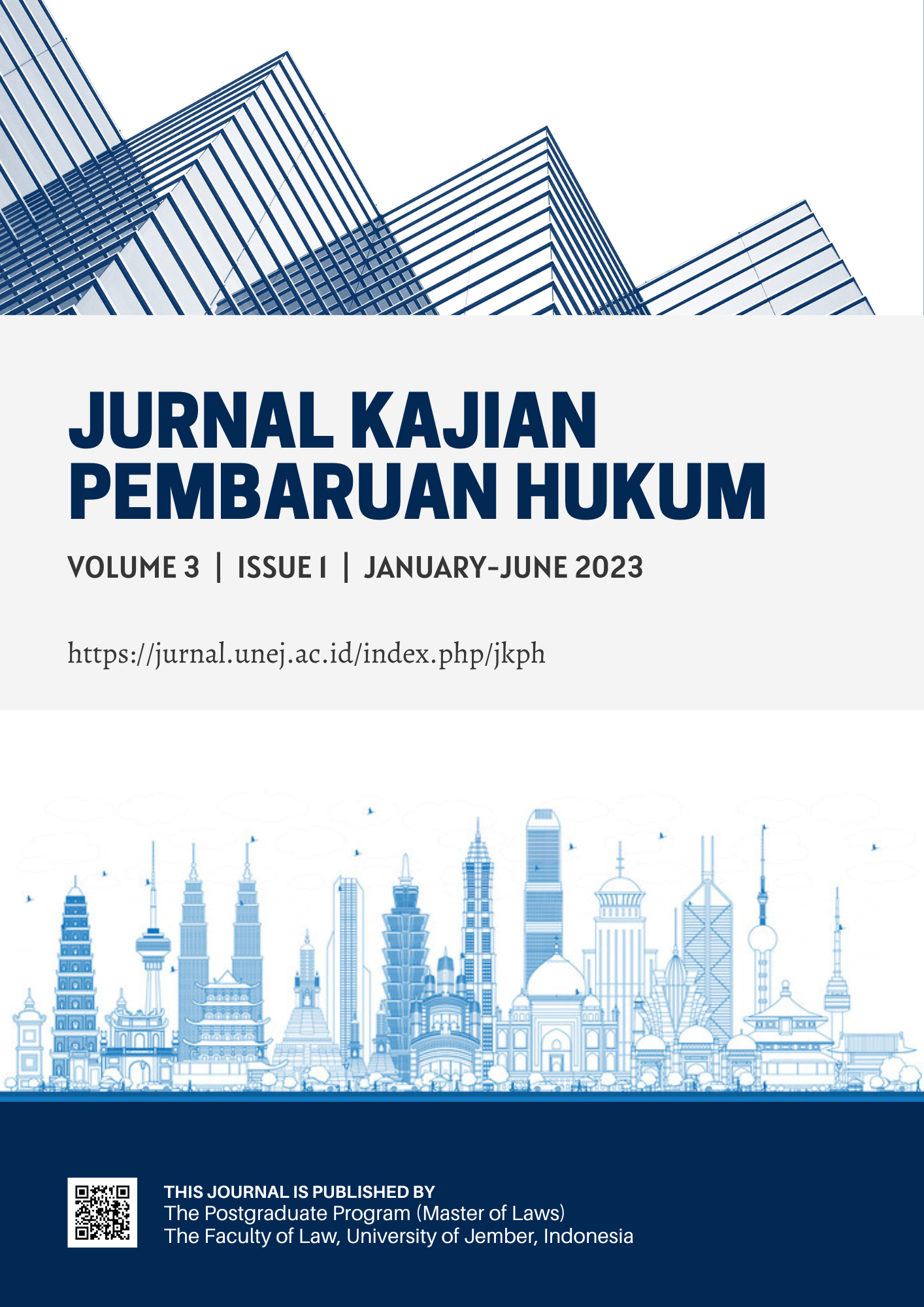Legal Reforming of Smart Contract in Supply Chain Demands Process between Retailer and Consumer
DOI:
https://doi.org/10.19184/jkph.v3i1.33610Abstract
The use of Smart-Contract has a potential to revolutionize aspects of global trade, given its practical characteristics with complex security systems. The novelty of Smart-Contracts also puts existing regulations to the test despite of legal vacuum. The purpose of this research is to analyze the novelty of this technology that has the potential to be misused, given its novelty which makes Smart-Contract lack comprehensive studies. This lack of study can also be seen in law and regulations that have not anticipated the existence of the Smart-Contract method. The risk of system failure is potentially detrimental in the long term by using of Smart-Contract in Indonesia, given the practicality of business transaction methods. This research uses normative legal research with a conceptual and statutory approach by identifying the potential legal risks of supply chain Smart-Contracts from the perspective of contract law. The results of this study explain that the potential risks of implementing Smart-Contract technology not only have an impact on financial aspects but also produce risks resulting from program failures or system errors. This system failure has the potential to be misused and endanger the interests of the parties involved in it. Indonesian legislation in electronic transactions has not specifically regulated the risk of failure or error in the smart contract system. The suggestion in this research is that stakeholders classify Smart-Contract into Indonesian legal rules so that business actors can have steps in mitigating risks arising from the use of Smart-Contract in the supply chain process.
Downloads
Downloads
Published
Issue
Section
License
Copyright (c) 2023 Jurnal Kajian Pembaruan Hukum

This work is licensed under a Creative Commons Attribution-ShareAlike 4.0 International License.









